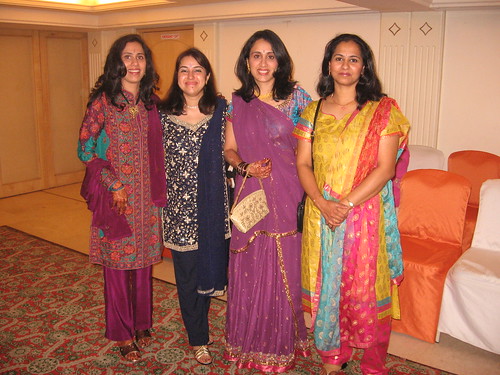La Palabra del Día: "la tía"
la tía ( tee'-ah )
noun ( aunt )
Francobollo is the official corrector for the Spanish sentences. Please correct your posts according to his suggestions. There are many native English speakers here, most of us can offer great suggestions to the English sentences. I will do my best to go through them all, too. Use today's Word of the Day in your own Spanish sentence (and include the English translation as well). Try to use the word in a completely new way and vote on the sentences you like best. The winner will be chosen based upon the correct use of the word as well as the number of votes.
Guidelines:
Write sentences at least 5 words long, but don't write a paragraph either. Write your Spanish sentence, but include the English translation as well. Make the corrections suggested by other users and moderators in the comments section (try not to use personal pronouns unless absolutely necessary). Use your own words! (Don't use a translator, copy from a book, use song lyrics, etc.) Have fun experimenting with Spanish.
Examples:

1. La tía de mi esposo nos regaló un viaje a Europa por nuestro aniversario.
My husband's aunt gave us a trip to Europe for our anniversary.
2. Mi tía y mi mamá, su hermana, son mejores amigas.
My aunt and my mom, her sister, are best friends.
20 Answers
Cuando era niño, mi tía me llevaba a jugar al golf en miniatura todos los fines de semana.
When I was young, my aunt used to take me to play miniature golf every weekend.
Parece que hay una tía loca en cada familia. Como recientemente mencionó alguien, si no hay una tía loca en tu familia, entonces casi seguro, esa persona eres tú.
It seems like there's a crazy aunt in every family. As someone recently mentioned, if there's not a crazy aunt in your family, then likely as not, that person is you.

A la casa de mi tía no se va todos los días.
You should not go crash at your aunt's house everyday.
En otras palabras, no abuses de quien te quiere.
In other words, one should not use someone who loves you.
En muchas culturas, a llamando una mujer que es viejo que tú ,"tía "
es una forma de respeto.
In many cultures , to call an older female "Aunty " is a form of respect.

An ant was writing a letter to his dear friend deer about her great aunt.
Una hormiga estaba escribiendo una carta a su querida cierva sobre su tía estupenda.

My best friend is from Singapore;
The island of beauty and amour.
She's a cutie; smart and lovely;
From a multi-ethnic family.
My friend has relatives in America
An uncle from India, an aunt from China
Her husband's British, they live in Liverpool
The world is her cradle, don't you think it's cool?

Mi mejor amiga es de Singapur;
La isla de belleza, paz y amor.
Es una chica inteligente y bonita,
Es de una familia multiétnica.
Tiene parientes en Asia y America
Un tío en la India, y una tía en la china
Vive con su esposo en Gran Bretaña
Y para ella, el mundo es su cuna.
Los modismos son cosas curiosas: en mi país tengo que contar mis historias increíbles a mi hermana, en la mayoría de otros países, tengo que decirlas a mi abuela, pero en países hispanohablantes tengo que decirlos a mi tía.
Idioms are funny things: in my country I have to tell my incredible stories to my sister, in most other countries I have to tell them to my grandmother, but in Spanish speaking countries I have to go and tell them to my aunt.


I have an aunt who used to have a beauty salon in the Philippines. I can still remember how it smelled.
Tengo una tía que tenía un salón de belleza en las Filipinas. Todavía puedo recordar como olía.
El idioma chino tiene más de cincuenta palabras que describen las relaciones. En inglés es mucho más fácil: la tía significa la tía. Si ella es la hermana de tu padre o la hermana de tu madre, no importa!
Chinese has more than fifty words to describe relationships. English is much easier: aunt means aunt. Whether she is your father's sister or your mother's sister, it doesn't matter!
A el niño no le gusta su tía porque no cocina bien.
The boy doesn't like his aunt because she doesn't cook well.

Mi tía y mi tío tienen 80 años. No son ningunos jovencitos pero son todavía están muy bien.
My aunt and my uncle are 80 years old. They are no longer spring chickens, but they are still fine.

Mi tía favorita viajaba mucho a Las Vegas, pero nunca ganó nada.
My favorite aunt used to travel a lot to Las Vegas, but she never won anything.

Tía Jemima hace panqueques delicioso. Aunt Jemima makes great pancakes.

Tener una buena tía es como tener otra mamá.
Having a good aunt is like having another mother.
En ingés, horrmiga y tía tienen sonidos similares. Entonces, mi primo joven me dice (cuando está mirando el piso) "¡Mira, Mira! ¡Puedo mirar tías!"
In English, ant and aunt sound very similar. As a result, my young cousin tells me (while looking at the floor) "Look! Look! I see aunts!"











